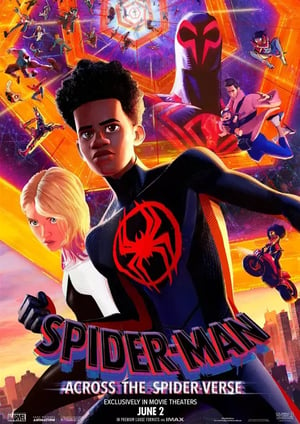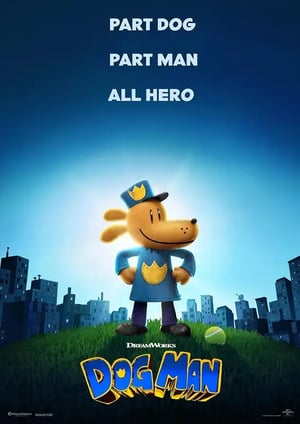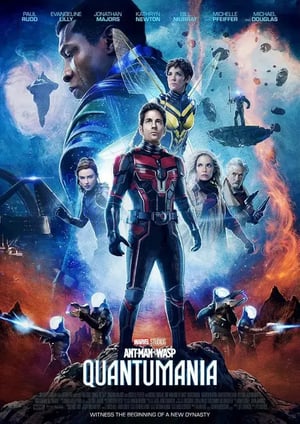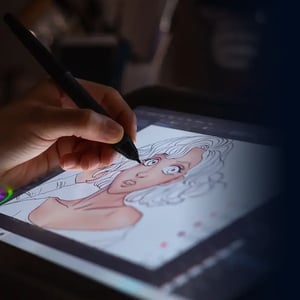
3D Animation Degree Program
DIPLOMA | BACHELOR DEGREE OF ANIMATION & VFX
Earn a degree or diploma in animation and become a professional 3D animator for film and video games.
Study an accredited industry-led animation degree specializing in 3D Animation
Learn how to breathe life into digital characters and creatures for film, TV, virtual production, and video games. With professional animators as your guide, develop advanced 3D animation skills using Autodesk Maya and understand the complexities of production pipelines and processes. Graduate industry-ready with a professional showreel.
Why study 3D animation with us:
- Gain the creative, technical, interpersonal, and conceptual skills and knowledge needed to succeed in the industry
- Study with more flexibility (100% online)
- Create industry-level work that recruiters will notice
- Graduate in less time than a typical degree - 2 years instead of 3
- Join a global community of 4000+ students, grads, and industry artists

Master Your Skills. Master Your Future.
Our mission is to ensure graduates are the best trained and best prepared for a successful career in their chosen field.
Everything You Need To Know
Our animation degrees and diplomas seamlessly blend academic excellence with practical industry methodologies to help students pave a steadfast pathway to a successful creative career.
 Qualification
Diploma (AQF 5)
Qualification
Diploma (AQF 5)Bachelor's Degree (AQF 7)
 No. of Trimesters
Diploma - 2 trimesters
No. of Trimesters
Diploma - 2 trimesters Bachelor - 6 trimesters
 Program Length
Program Length
Diploma - 7 months
Bachelor's Degree - 2 years
Part-time study available
 Delivery Mode
Online live classes
Delivery Mode
Online live classesCustom video lectures
Personalised mentor feedback
 Course Fees
Diploma - $16, 664 USD
Course Fees
Diploma - $16, 664 USDBachelor - $49, 992 USD
Payment options available
Course Structure
Develop industry foundations with our 6-month Diploma, or continue into the full Bachelor's Degree to build more comprehensive skills.

The Bachelor of Animation and VFX majoring in 3D animation will teach you complex creature and character animation techniques as well as essential interpersonal skills and both practical and conceptual industry insights.
- Your characters and creatures will walk, talk, run, jump, and fly as you gain a comprehensive understanding of body mechanics.
- Learn integral storytelling and character acting techniques to enhance your animated performances.
- Discover industry-standard practices, procedures, and workflows.
- Build valuable interpersonal skills such as communication, problem-solving, and leadership.
- Dedicated time to building your professional showreel and getting job-ready.
The below course outline reflects a full-time course load, which comprises three subjects per trimester and three trimesters per year over a two-year duration. Part-time study options are also available.
Develop industry foundations with our 6 month Diploma, or continue into the full Bachelor's Animation degree to build more comprehensive skills.
Trimester 01
- 3D Animation Foundations
- Film and Games Principles, Concepts and Innovations
- Industry Overview: Pipeline and Production Processes
Trimester 02
- Body Mechanics
- Art and Design Concepts and Principles
- Communicate! Mode, Purpose and Context
Diploma Exit Point
Students can choose to exit the bachelor's degree after trimester 02 with a diploma or continue their studies through to trimester 06 and earn their bachelor's degree.
Trimester 03
- Storytelling for Animation
- Concepts and Principles of Story and Visual Narrative
- Identifying and Solving Problems
Trimester 04
- Advanced Character Acting
- Concepts and Principles of Lighting and Cinematography
- Managing Projects and Creative Assets
Trimester 05
- Creature Animation
- Leading with Integrity
- Establishing and Sustaining Your Business
Trimester 06
- 3D Animation Capstone Portfolio
- Stepping Into Industry: Becoming a Proactive Practitioner
- Marketing Yourself and Your Work
Bachelor Degree Point
Download the Course Guide
Your creative journey begins here! Download our comprehensive course guide and discover the exciting educational opportunities that await you.CG Spectrum’s Bachelor's Degree of 3D Animation provides students with the essential skills for a career in animation and VFX.
Key learning outcomes include:
- Advanced Animation Skills: Master creature and character animation with a focus on body mechanics.
- Storytelling and Acting: Learn character acting and storytelling to create compelling animated performances.
- Industry Practices: Gain hands-on experience with industry-standard tools, workflows, and procedures.
- Professional Skills: Develop communication, problem-solving, and leadership abilities for effective teamwork.
- Showreel Creation: Build a professional showreel to showcase your skills to potential employers.
Graduates will be ready to excel in the animation and VFX industries with strong technical, creative, and professional capabilities.

Bachelor Degree Tuition
Avg. Cost per Trimester
$8,332 USD
Duration
6 Trimesters Full-time (2 Year Fast Track or Part-time Options Available)
Total Program Cost
Diploma Tuition
Avg. Cost per Trimester
$8,332 USD
Duration
2 Trimesters Full-time (Part-time Options Available)
Total Program Cost
Don't Put Your Future On Hold
With CG Spectrum’s expert training, you can develop the skills and connections you need to thrive in the competitive film and game industries.Learn Directly From Film & Game Mentors
To be the best, it helps to learn from the best. All 3d animation classes are taught by professional 3d animators with years of experience.


Mark Pullyblank
Mark has held lead positions at Rainmaker, Sony and Weta Digital working on films like Avatar, The Adventures of Tintin, and Night at the Museum.
Known for Avatar


Spectra
Spectra has been animating for almost a decade at Playstation, Digital Domain and Ubisoft on projects such as Far Cry 6, Uncharted 4: A Thief's End, and Advantageous.
Known for Uncharted 4: A Thief's End


Carlos Rosas
Known for Venom

Ambre Maurin
Ambre has worked as an animator in the UK, Australia, New Zealand, USA, and Canada on projects like LEGO Avengers, Happy Feet Two, Avatar and Where the Wild Things Are.
Known for Avatar


Jon Vener
Jon is an artist, developer, and educator who has been in Animation, VFX, Games and VR for 13 years and has been a digital creative professional for 20+ years.
Known for Halo 4


Elena Miroglio
Elena is a Senior Animator at Sony Pictures Imageworks. She's worked on projects including The Darkest Minds, Spider-Man: Far From Home, Guardians of the Galaxy: Vol. 2, and Hotel Transylvania 3.
Known for Spider-man 3: Homecoming


Abdel Pizzaro
Hailing from Puerto Rico and residing in the US, Abdel Pizarro has experience in both 2D and 3D animation. Abdel has also worked with clients like Nickelodeon, Marvel, Big Ideas, Sesame Street and ...
Known for Planet Blue: Journey to Eco


Nick Unden
Nick's held lead positions at major game studios Relic Entertainment and Phoenix Labs. Credits include Dauntless, Dawn of War 3 and Resident Evil: Operation Raccoon City.
Known for Dauntless


Amita Sahgal
Amita has worked as an Animator and Animation Supervisor for two decades. She is also an experienced mentor, teaching at Mages Institute of Excellence and Supinfocom International Animation School.
Known for Ted


Enric Joanmiquel
Known for Bleeding Edge


Yuri Perrini
Yuri is a 3D Animator and Rigger who has worked across film, TV, commercials, video games, and mixed reality AR-VR, for clients such as Jim Henson, Stan Lee, Gatorade, and the 2018 World Cup.
Known for The Cleansing Hour
Get The Education Your Deserve

"One of the best decisions I've ever made for my career.
I've learned and grown so much throughout this program and I loved the resources in the CG Spectrum community, such as finding new job opportunities and meeting other students and mentors. I took advantage of everything CG Spectrum had to offer and as a result, I landed my dream job at my dream company (Dreamworks). Thank you CG Spectrum!"

Tiffany L | 3D Animation

"I’d take the course again if I could!
I can’t praise CG Spectrum enough for the quality of teaching and dedication to their students. Mark was by far the best mentor I’ve ever had. He really took the time to help design the course around what it is that I wanted to get out of it. I’ve studied other animation courses in the past, but none even come close to the depth and speed of development as CG Spectrum."

Ned C | 3D Animation

"To better understand the industry, I enrolled at CG Spectrum.
There I was able to create a demo reel and build connections with professionals that ultimately led me to my first opportunity as an animator at Sony Imageworks. I have to give a HUGE shout-out to CG Spectrum’s Career Development Manager. She was the person who guided me through the entire application process. I honestly believe I would not have gotten this opportunity without her help."

Jasmeet S | 3D Animation

"I learned more in 9 months than other students do in 2 years.
The level of education I have received is unlike any other school I've come across. What separates CG Spectrum from other schools is that the mentors are not only talented professionals in their own right, but they also care about your success as an artist both in school and after you graduate. CG Spectrum is incredible, I cannot recommend it enough."

David N | 3D Animation

"Getting access to industry mentors is huge.
There's a world of information out there, but nothing compared to talking to someone in the know. CG Spectrum was one of those places. I really liked the 1-on-1 format. It was the first time I had an experienced animator open my scene file. It was what I needed to get over some technical hurdles."

Kyle D | 3D Animation

"CG Spectrum has been an instrumental part of my growth.
CG Spectrum has helped me sharpen my skills, acquire new ones and strengthen my character animation abilities. This is an invaluable experience for anyone looking to take their skills to the next level."

Phil M | 3D Animation

"The career program was invaluable!
I knew changing careers would have included things such as resumes, applications, networking, etc. The biggest thing I needed to understand was the nuances of the animation industry, etiquette for approaching recruiters, and what type of roles there were. These sessions really helped guide me, and explained how to approach my showreel and the subsequent application processes."

James B | 3D Animation

"It's been extremely helpful for my portfolio and my confidence as an artist!
I've learned so much about not only animation, but the thought process an artist goes through when creating a piece."

Shravani K | 3D Animation
Join Our Alumni at World Class Studios
Our mission is to train highly skilled graduates ensuring they are prepared for a successful career. Take the first step towards joining our alumni at world-class studios creating work that inspires.












Questions? We Have Answers
Details for both domestic and international applicants can be found on our Entry Requirements page.
CG Spectrum Institute is registered with the Tertiary Education Quality and Standards Agency (TEQSA).
All CGSI degrees and diplomas are accredited, providing students with credible and recognized qualifications.
About TEQSA:
TEQSA stands for the Tertiary Education Quality and Standards Agency. It is an independent regulatory body in Australia responsible for assuring the quality and standards of higher education institutions.
TEQSA-accredited qualifications are widely recognized, allowing students to pursue further studies or employment opportunities around the world.
Your studies will require you to download and get acquainted with a variety of software, including:
Core Subjects:
- Shotgrid - educational license
- Canvas - free license
- Nuke by Foundry - (non-commercial) educational license
3D Animation Major:
- Autodesk Maya - one-year educational license (renewable)
We recommend a minimum of 32GB RAM. See below for more info on hardware specifications.
Core Subjects:
3D Animation Major:
- Autodesk Maya
Please note: As the software we use is regularly updated, please check the specs against the latest available version at the time of enrollment.
CG Spectrum Institute ensures that individuals can access high-quality education and professional development without significant financial barriers, empowering them to achieve their goals and excel in their chosen fields.
Australian Students:
All higher education AQF Award Courses offered at CGSI are supported by the Australian Government’s FEE-HELP program.
Domestic students who meet specific eligibility criteria can access FEE-HELP, which allows them to borrow money for all or part of their tuition fees and repay the loan through the tax system once their income reaches a certain threshold.
For more information, please head to the Financial Aid on our website.
International students:
There is a range of financing options suited to your situation and country. Please contact our friendly admissions team for more information on how we can support your learning journey.
On completion of the Bachelor of Animation & VFX, you will have greater confidence in your abilities and a portfolio to show employers.
You will also have personalized career services with our Career Development Manager, which can help when applying for junior 3D animation jobs such as:
Discover more about these 3D animation jobs, tips, and salary expectations on our careers page:
While our past students have a high job success rate, we cannot offer guaranteed employment as the film and game industry is competitive, and there is no way of knowing what the market will demand.
The students who experience the greatest success are those who take responsibility for their career, put in the hard work to get their skills and portfolio up to industry standard, leverage their mentor's invaluable expertise and the networking opportunities provided through the CG Spectrum community, and take advantage of every opportunity to excel.
To help students find employment, we have a range of career services and a dedicated Career Development Manager who regularly hosts exclusive career-focused webinars, Q&As, artist interviews, and workshops for students and alumns and is available to answer career-related questions.
Degree students receive additional 1-on-1 career support, CV/portfolio reviews, and help with application/interview preparation. And their final trimester is dedicated to getting them job-ready.
If you have any questions about our career services as they relate to your personal career goals, please don't hesitate to get in touch.
Ready to take the next step toward your future? Head to our application page to get started. Whether you're looking to learn something new, build on your existing skillset, or nurture your creative side, begin your application today to start your creative journey with us!
Looking For Something Else?
Check out our full range of courses with study options for all skill levels, from short introductory courses, specialized industry tracks and accredited degrees and diplomas





